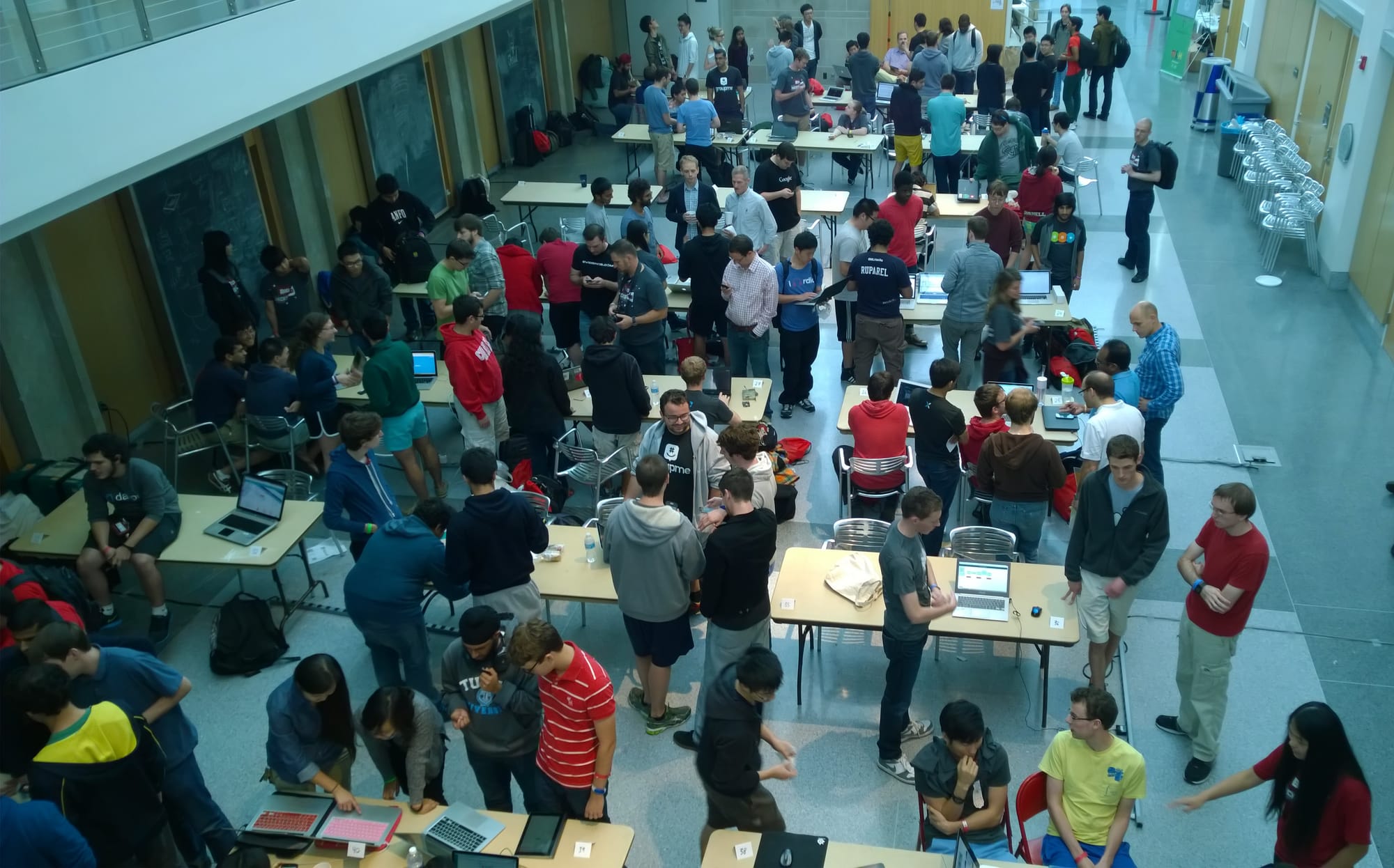Hackathons: Not Just for Kids
Hackathons are often associated with students, but that's not always true! InfernoRed Technology developer and Microsoft expert Steve Maier breaks down the world of Hackathons and gives pro tips on how to make it work for you.

Many people may have done a hackathon while at college or maybe even in high school. For those who do not know what a hackathon is, it is an event where technologists get together for a short time and create something. A hackathon might have a theme that everyone has to follow, for example, the Global Game Jam typically gives out a theme that everyone needs to follow for that weekend. Many times, hackathons are only a weekend but could be longer.
However it works, hackathons can benefit many groups from students to professionals. In this post, I'll outline some of the tips and common misconceptions from my years in this field at the corporate and academic level!
How Hackathons Work
When I taught game programming at a college or worked at Microsoft as a Senior Technical Evangelist, I helped organize and run hackathons many times. There's a lot to prepare for an event like this, including:
- Find a venue to fit the expected number of people
- Based on that venue, pick a date
- Organize food
- Get volunteers / mentors
- Get funding / sponsors
- Set expectations / rules
Sounds simple, right? Not always!
Venues
The venue can be tricky for a person organizing an event. It sets how many people you can support and the times for the event. If the area used during the weekday, then maybe your event must be over the weekend. Could the other people who use the space get moved or delayed? The date is then also tied to the venue because you might want to plan it for a certain weekend to only find out that there is a job fair happening at the same time that you want.
One tip about the date from the academic side is to not pick a date around the time of mid-terms or finals. Many people will not do an event during these times. The other thing is to keep it away from the end of the semester. People have projects or reports that need to be finished (and in some cases started) and do not have time for your event.
Food
Food is important to organize. Will the event provide food, drinks, and snacks? Are there vending machines or stores close by that participants can use? Keep in mind that yes, programmers like pizza, but that should not be the only thing you have available. Having healthier choices is important as well as looking out for allergies or food sensitivities. And I suggest having water as well as other drinks available.

One event that I helped with actually had a cookie order from a local cookie store at midnight. They delivered warm cookies, drinks, ice cream, and more. It was a definite boost to morale at the event!
Volunteers
Volunteers are important because they do the hard work for the event. They set things up, keep it clean during the entire event, organize the food, and pay for it. They can also be mentors and a person who can answer questions to the teams participating. At events at universities, there are typically rules against students being in the various buildings after a certain hour, so the volunteers also need to coordinate with campus security as well. This includes what times to outside doors lock, how can people get back in if they are locked out, etc.
Funding
Funding and sponsorships can be useful to pay for the food or the venue. One memorable example is from the first hackathon at Cornell University. The team planned to have 400 people for the event. That is a huge number for your first event, but they were able to fundraise from Google, Microsoft, Amazon, and Apple to cover the cost. The sponsor for the event gave the keynote address and stayed all weekend to support the students when they were stuck on things.
Expectations
The final thing on my list is to set expectations and rules. Is there a maximum team size? Does the venue close overnight so that the people need to go home. What are the judging criteria? Is there a theme to the competition? Are people allowed to sleep at the venue, such as under a desk? This rule comes from a personal experience as well! Some venues might have rules against saying over. Your rules will change with each event that you do.
Remember: the events are meant to be fun - for the creators, judges, and volunteers - and good planning can go a long way to making that happen!
What Hackathons are NOT
At one hackathon, I had a student from another college tell me that he almost didn't come because the head of the Computer Science Department at his school told him that hackathons were about cracking security and breaking into banks and other corporate secret things. I am not sure what movies/tv shows they had been watching, but that is not what hackathons are about.
Are there cyber-security-focused hackathons and events? Yes, but typically those are events featuring safe competitions between teams from various colleges to see who can break into a server that is on the network faster, who can protect their server better, and learning from each other. Not hacking into a bank to install something to collect the rounding values from interest collected on each account - or any other example!
Some students use the hackathons as a time to get together with others and then just work on their normal assignments. At the end of the event, they say that they were not able to get another done for the judging. This way they get a lot of smart people around them and free food and maybe even some swag from a corporate sponsor. Be sure to set the expectations for your event if you are hosting - or think critically about your goals if you plan to participate!
Hackathons in the Corporate World
In a corporate environment, hackathons can also be a useful tool for staff, teams, and leaders. Some companies want all of their people to commit 15-20% of their time to brainstorming and coming up with new unique ideas like they would in a hackathon. The popular product Post-It Notes was created during a required 15% time of experimenting. Multiple Google projects were created originally during their 20% creative time.
Not only could a company take the ideas and develop them into products, but these events give the employees a chance to work in a new language or environment. This could open up the business to new contracts/projects or a new way to look at existing work. A great example of this is AI: your software developers might not have the time to work with it during the day, but during a hackathon, they can spend an amount of fixed time experimenting and testing the capabilities.
In a developer retreat that we had in 2023 at InfernoRed, we came up with a way to use AI to generate mock test data for various projects. This is always something that is a pain point for developers. Spending the time at this hackathon helped us find a solution for issues that multiple projects are having.
Professional Hackathons
There is one more place where a hackathon can be used and that is by companies and organizations that are looking for a solution to an issue and want to crowd-source for a solution across broad audiences. These corporate or government-sponsored events typically pay the winners of the event.
Keep in mind that events like this require very clear terms. It might be that all code/ systems created for that event become the property of the sponsor. This means that you might not be able to use it yourself, even if you did not win. A friend of mine actually has won multiple events like this and from them was able to bootstrap a couple of different businesses as well as earning over $50,000. Not bad for a few weekends of working on some new ideas!
DevPost is a great source for finding events that might interest you. The site allows you to find beginner hackathons, ones that last multiple weeks/months or are totally open-ended.
Last Word
When I was a full-time professor in one of the top game development programs at the university level, I would always suggest that students compete in hackathons because they can learn a lot in a short amount of time. Hackathons can help you have time to learn new technology, work on scoping your projects, and use tools like source control or project boards. One thing is for sure is that hackathons are not just for kids!

